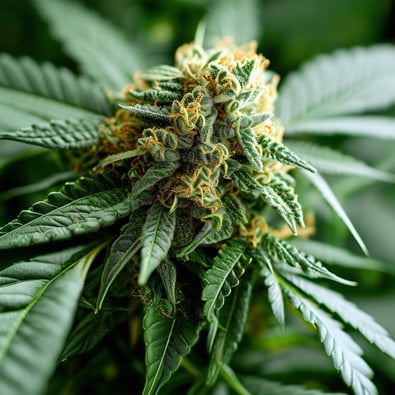Denmark’s medical cannabis Pilot Programme has seen patient numbers grow by more than 90% between Q2 2022 and Q2 2023.
Recently published data from the Danish Health Data Authority shows that the number of patients taking part in the medical cannabis Pilot Programme, launched in 2018, has skyrocketed this in 2023, and now represents the largest access scheme in the country.
According to Danish medical cannabis operator Stenocare, which produces two cannabis oil formulations for the pilot, this coincides with the introduction of its oils to the scheme and represents a shift in preference away from cannabis flower towards oils.
Denmark’s medical cannabis access schemes
While medical cannabis is not fully regulated in Denmark, there are a number of access schemes that enable patients to secure a prescription.
The Magistral scheme
The first is the Magistral scheme, understood to have been launched in 2016, which until recently ‘represented the entire medical cannabis industry in Denmark’.
Prior to the launch of the far more accessible Pilot Programme, this represented the primary route for patients seeking a legal path to treatment for conditions such as chronic pain via cannabis.
Only specialist doctors are able to prescribe magistral formulations, which are individually prepared in licensed pharmacies for specific patients. These formulations cannot be put out as standard products.
Stenocare’s CEO Thomas Skovlund Schnegelsberg explained to Business of Cannabis that only two pharmacies in Denmark currently have a licence to produce under this access scheme, and one is responsible for delivering ‘99%’ of prescriptions to patients.
Products under this scheme are also formulated with CBD and THC isolates, so do not contain the cannabinoids present in full spectrum oils.
The Pilot Programme
This scheme was launched in 2018 and is due to run until 2025, and was aimed at offering patients greater access to medical cannabis ‘if they have experienced no benefits from authorised medicines’.
The Pilot Programme allows all doctors in Denmark to prescribe without the need for specialisation, specific training, or special certification. Any doctor can prescribe for any condition they consider relevant. There’s no limitation on what indication is targeted.
Doctors can prescribe any of the unlicensed medicines that have been approved for the trial.
These include three separate SKUs from Dutch cannabis producer Bedrocan, which are classed as ‘herbal teas’ and sold in 5g packages.
The classification enables these products to avoid much stricter approval requirements than those classed as products for inhalation, even though they are commonly smoked as such.
Then there are Stenocare’s two medical cannabis oil formulations.
Pharmaceutical scheme
A third pharmaceutical access scheme also exists, which enables patients with multiple sclerosis and rare forms of epilepsy to access GW Pharmaceutical’s Sativex and Epidyolex products.
Sativex and Epidyolex are the only two cannabis-containing medicines to be officially authorised by the Danish Medicines Agency.
This scheme is much smaller in terms of patient numbers than the other two but, due to the high costs of Epidyolex in particular, outpaces them in terms of revenue.
Since the start of 2022, the number of patients in the scheme has more than halved, but revenues have increased, suggesting the ratio of Sativex/Epidyolex products being prescribed has shifted towards the latter.
Shifting numbers
According to the latest data from the Danish health authorities, the number of patients in the Magistral scheme was more than double those in the Pilot Programme until just over a year ago.
As of Q4 of 2020, the Magistral programme had 1,052 patients, representing more than half of Denmark’s total 1,789 patients, and more than double the 493 patients participating in the Pilot Programme. While the market shrunk by around 16% in 2021, both access schemes saw a decline almost exactly in proportion to the wider market.
While the total number of patients stayed almost completely flat in 2022 (1,495), by Q4 the Pilot Programme had regained its 16% market share, largely cannibalising patients from the Pharma programme, pulling ahead of the Magistral programme, which grew just 1%.
In 2023, the Pilot Programme’s market share skyrocketed, growing 34% in Q1 and a further 20% in Q2, seeing the number of participants jump from 493 to 789 in six months, compared with wider market growth of around 10%.
This growth was largely cannibalised from the Magistral and Pharma schemes, which fell 14% and 17% respectively between Q4 2022 and Q2 2023.
Mr Schnegelsberg suggested this was due to two main factors, firstly the ability for any doctor to prescribe in the pilot scheme, and secondly that the products available in the other schemes were ‘not based on the full spectrum cannabis plant’.
“This means you don’t get the entourage effect that, according to the doctors that I’ve talked to… say they see a higher efficacy with the full spectrum, with all the cannabinoids.”
Stenocare has also suggested that the significant growth in the Pilot Programme coincides with the launch of its oil products into the scheme in Q1 and Q4 of 2022.
Mr Schnegelsberg also said this represented a growing preference for medical cannabis oils in the market, in which it intends to launch a third oil over the next six months.
“When speaking with individuals in Denmark, Norway, and Sweden, there appears to be a prevailing mindset that they prefer not to smoke joints when they are unwell. Additionally, the doctors are generally not supportive of such a method. So, whenever there is an alternative that resembles a more medical dosing device similar to those used for other types of medicine, they are more inclined to switch to that option.”




